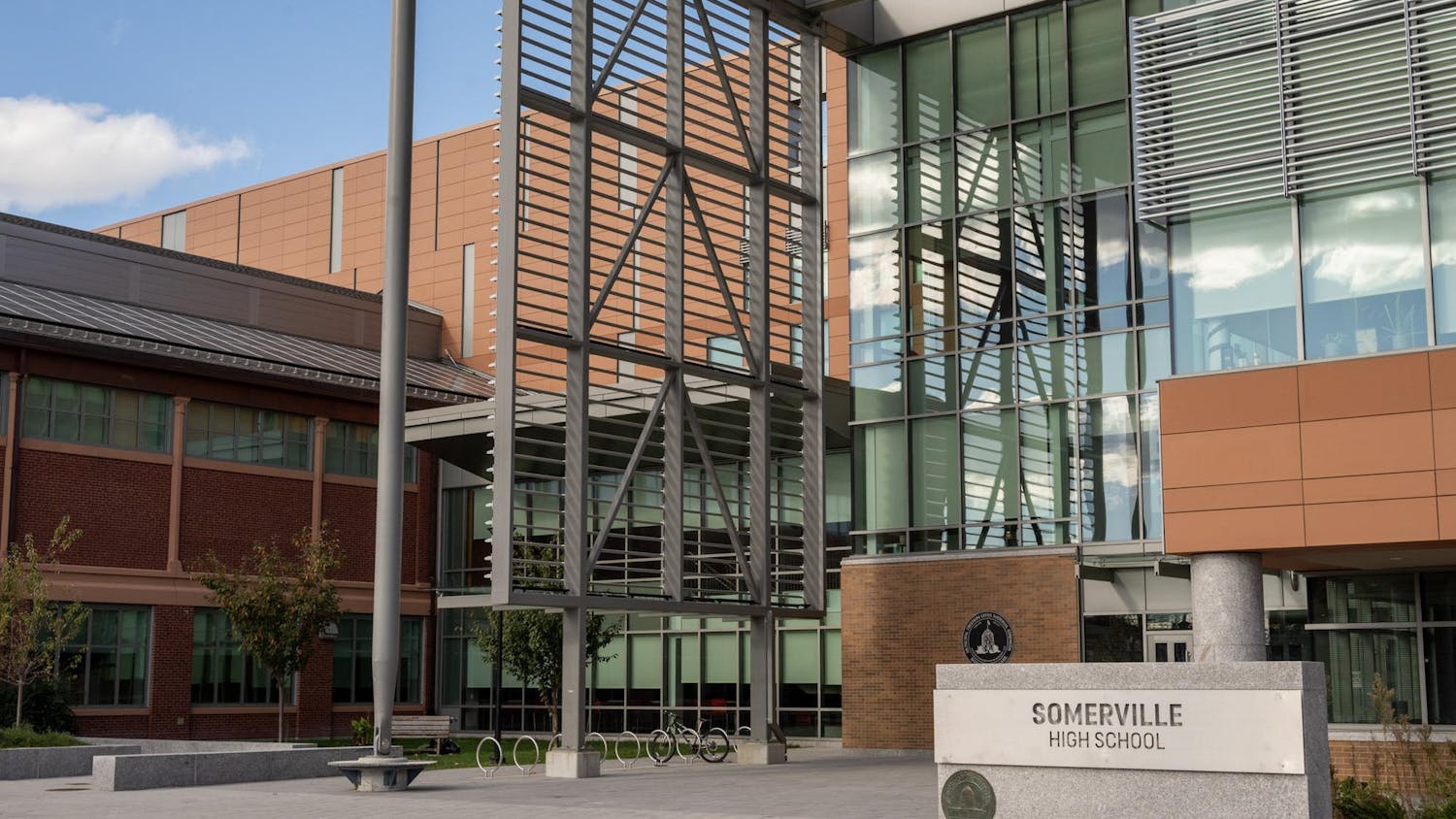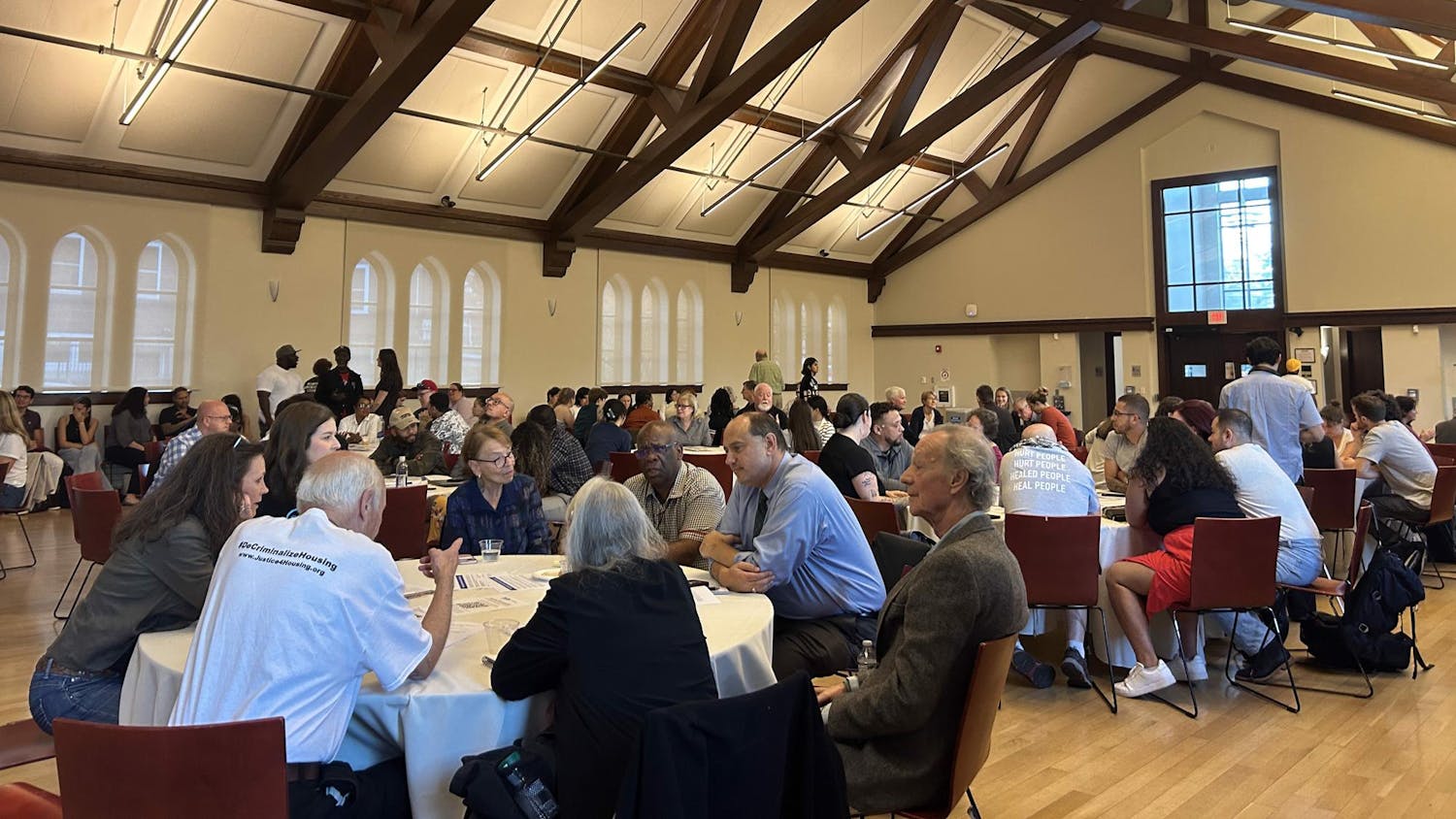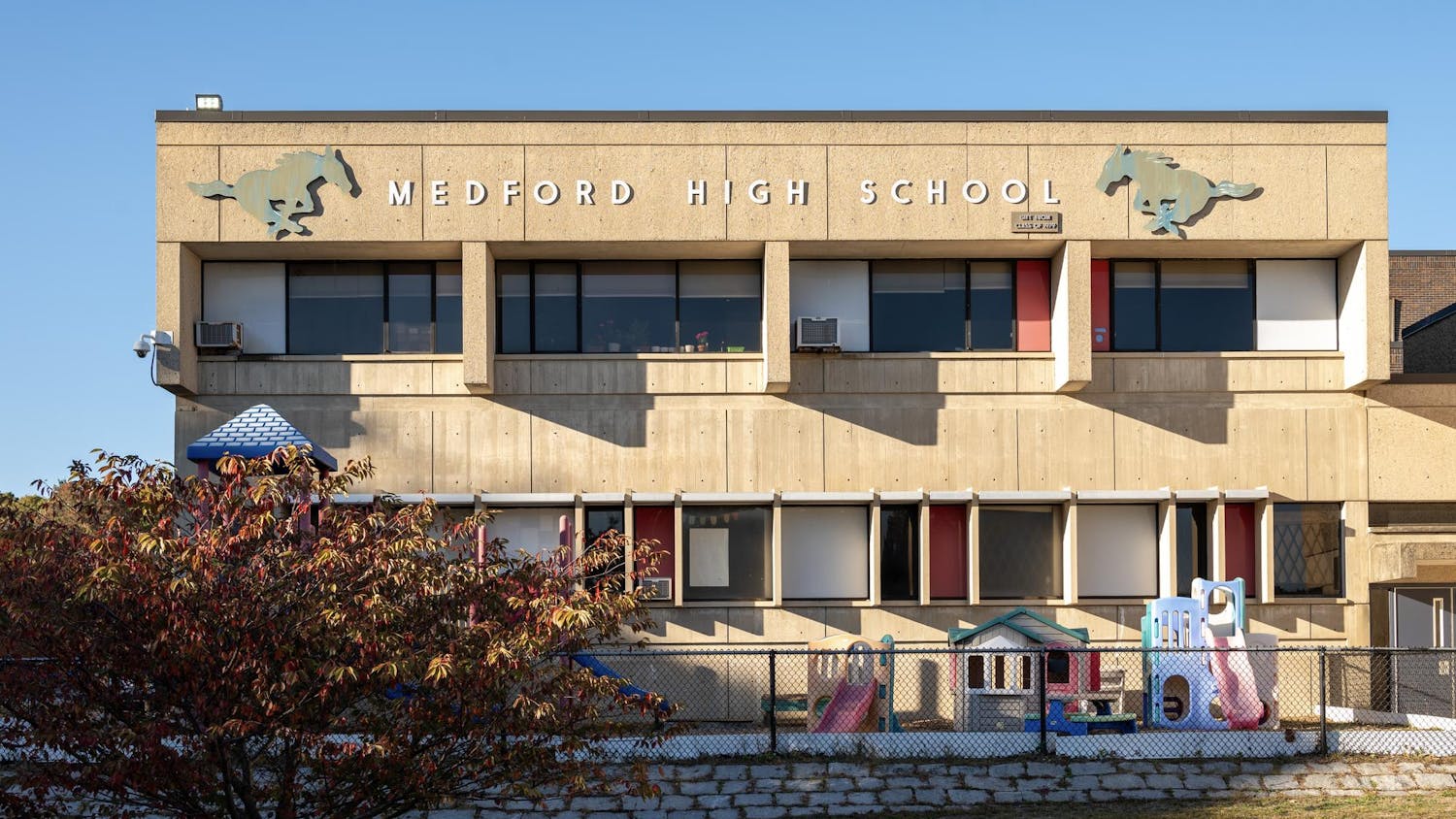As the end of the Class of 2009's time at Tufts approaches, senioritis, commonly associated with the onset of academic apathy, is working its way into the study habits of soon-to-be graduates, though some students feel the pain more than others.
Early job security is no stranger to senioritis. Senior Elizabeth Gibbons, who is graduating early this semester, lined up a position as an actuarial consultant at the Boston office of Pricewaterhouse Coopers, a large professional services firm for which she had previously interned.
A math and economics major, Gibbons found a job relatively easily despite the economic climate, but such success has meant a deviation from her normally strong motivation.
"I would say that I've had senioritis to a large extent," Gibbons said. "Now, I guess especially having a job and knowing that a lot of classes that I am taking now don't apply to my job has really made it difficult to actually do my problem sets and do the homework and even go to class sometimes. It's hard."
While the aforementioned symptoms may not be entirely unfamiliar to many students, with the last leg of high school hosting its own bout of the epidemic, Gibbons said that senioritis is a new experience for her.
"It's not really something I had in high school because of AP classes and stuff — even through senior year I still had things to do," she said.
Gibbons' symptoms have manifested themselves in typical fashion, but she has made an effort to not fully succumb to such inclinations.
"I have done a pretty good job of making myself go to class and getting the work done, but I do leave things to the last second a lot more than I have ever done at Tufts, and don't put in the same amount of effort that I have previously," Gibbons said.
While Gibbons attributes her senioritis to both her employment plans as well as the fact that she is graduating a semester early, she said that many of her friends, whom she estimates about half of are in the process of looking for jobs, are not showing signs of decreasing motivation.
"Especially now with finals coming up, a lot of my friends have a ton of papers for the next couple of weeks, so they're definitely still involved in getting their work done, whereas I think a lot of that is because they don't have jobs yet, so they are more focused on it a bit more than I am," she said.
Due to the early application deadlines for most positions in the financial industry, another student, senior Zoe Nourallah, secured a post-college job as a risk management analyst at CitiGroup, a large financial services company in New York, but said she hasn't yet faced a decline in her performance at Tufts.
"I do want to eventually go to business school, maybe two years after working. However, I used to be a pre-med student, I took all of the pre-med classes and almost applied to med school," Nourallah said. "This is the first semester that I don't have any sciences ... so it's been much easier, I [have] the same amount of work that I had before, [but] I am getting much better grades because I don't have a science class to worry about."
Gibbons said that despite her waning diligence, she also feels that her performance this semester will not affect her future academic or employment prospects.
"I am not really concerned, because I set myself up well enough that even if I totally bomb my classes — and I am only taking three, which is another reason for my senioritis — my GPA is still good enough to where I would be okay in applying to grad school, and I don't think my employer is that concerned about it because they look at so many different majors that GPA doesn't really translate across them very well," she said.
Nourallah said that any indications of senioritis that she has seen have been subtle, citing the competitiveness of Tufts as a factor.
"I think there are slumps when a paper is due in three weeks, when maybe in earlier years you might have stayed on top of the reading and prepared earlier," she said.
According to Nourallah, those students who intend on attending graduate school soon after graduation face an increased delegation of time towards related activities rather than a direct decrease in motivation in their Tufts academic pursuits.
"Everyone who is filling out their applications for grad school now makes that a higher priority, but I wouldn't say that they are slacking off on school," Nourallah said. "Of course there are people who have a bunch of easy classes left, because they finished their major and their requirements, so obviously they aren't spending time at the library, because if classes are easy there's no need to."
According to Jean Papalia, director of Career Services, students who seek assistance through her office are often very motivated yet willing to make accommodations in their academic schedules.
"Based on anecdotal observations, it seems that students who are energized about making career plans may be less likely to ‘drop the ball' on their academics. In fact, students will often comment on putting aside career related efforts to attend to studies," Papalia said in an e-mail to the Daily. "In other cases students report planning their schedules so that their second-semester senior year is ‘lighter,' to allow for focus on job search."
Senior Daniel Jeng, who has been actively pursuing employment since September and is still continuing the search, said he does not believe senioritis is as prevalent at Tufts as one would expect.
"Considering the global recession and the diminished job market, most of the seniors I know are anxious regarding the future and thus are driven to dedicate even more time and energy to academic success," Jeng said.
Jeng said that factors such as improved efficiency in studying, remaining requirements and how his fellow peers qualify a "good" senior year indicate whether they are likely to slack off.
"Many consider having a ‘good' senior year as positively correlated with the number of social functions attended, the volume of alcohol consumed … amongst other things. If this is high on the priority list, then academic performance may be adversely affected," Jeng said.
Motivation may also fluctuate according to the difficulty level or time-intensive nature of individual classes, as well as its importance of one's major. Japanese Lecturer Shiori Koizumi said that she has noticed an improvement in the work ethic of seniors.
"In most of the cases senior year, of course everything isn't an A-plus, but I have seen a lot of improvement," Koizumi said.
Koizumi added that many of her students, particularly those majoring in Japanese, began making plans as early as last semester to secure jobs, indicating very little slack in academic efforts.
"In senior year, they are very serious about their future that's coming soon. They know that they have to graduate first of all, but they really want to think about whether or not they can use Japanese," Koizumi said.
According to Neil Miller, a lecturer in the English department, the level of motivation of seniors in his classes varies.
"It's kind of hard to evaluate, just because I haven't seen them over the years," Miller said. "I've seen some seniors that are the opposite, that just have an incredible work ethic that they have probably developed since age five, and it just continues through their senior year. There are people like that, which always kind of surprises me … because I remember my own senior year when we did slump off."
Before dismissing senioritis as nonexistent, though, Miller said that the higher levels of noticeable senioritis are likely still to come.
"There are people who won't attend classes, their attendance falls off a bit, particularly towards the end of the semester," Miller said. "Particularly maybe second semester rather than first, you do get people not putting their all into things, and I think it becomes more so as the semester goes on. There is a lot of enthusiasm at the beginning."
Still, Miller argued that any noticeable slump might be more related to job searches and graduate school applications.
"I do see people putting more attention toward their internships and interviews than their courses," Miller said. "I don't know if other professors see that, maybe it's such a small amount, but I do think the economic climate could have an impact."





